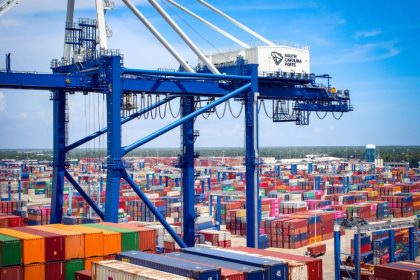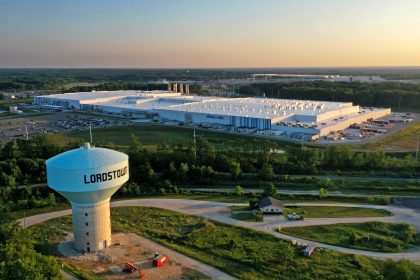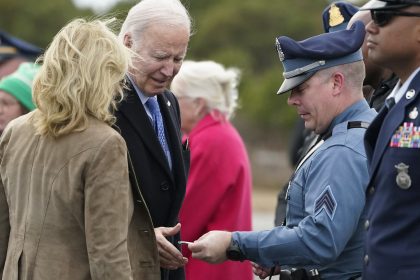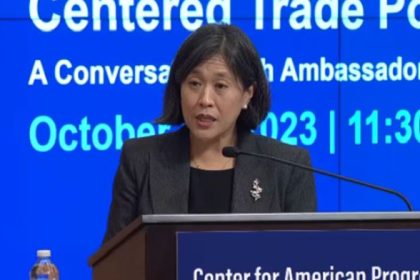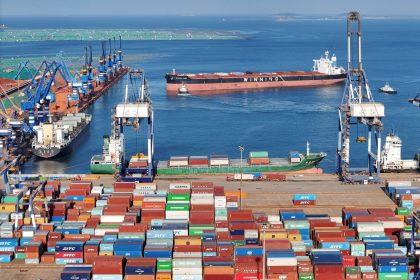Revised North American Trade Deal Overwhelmingly Passes House
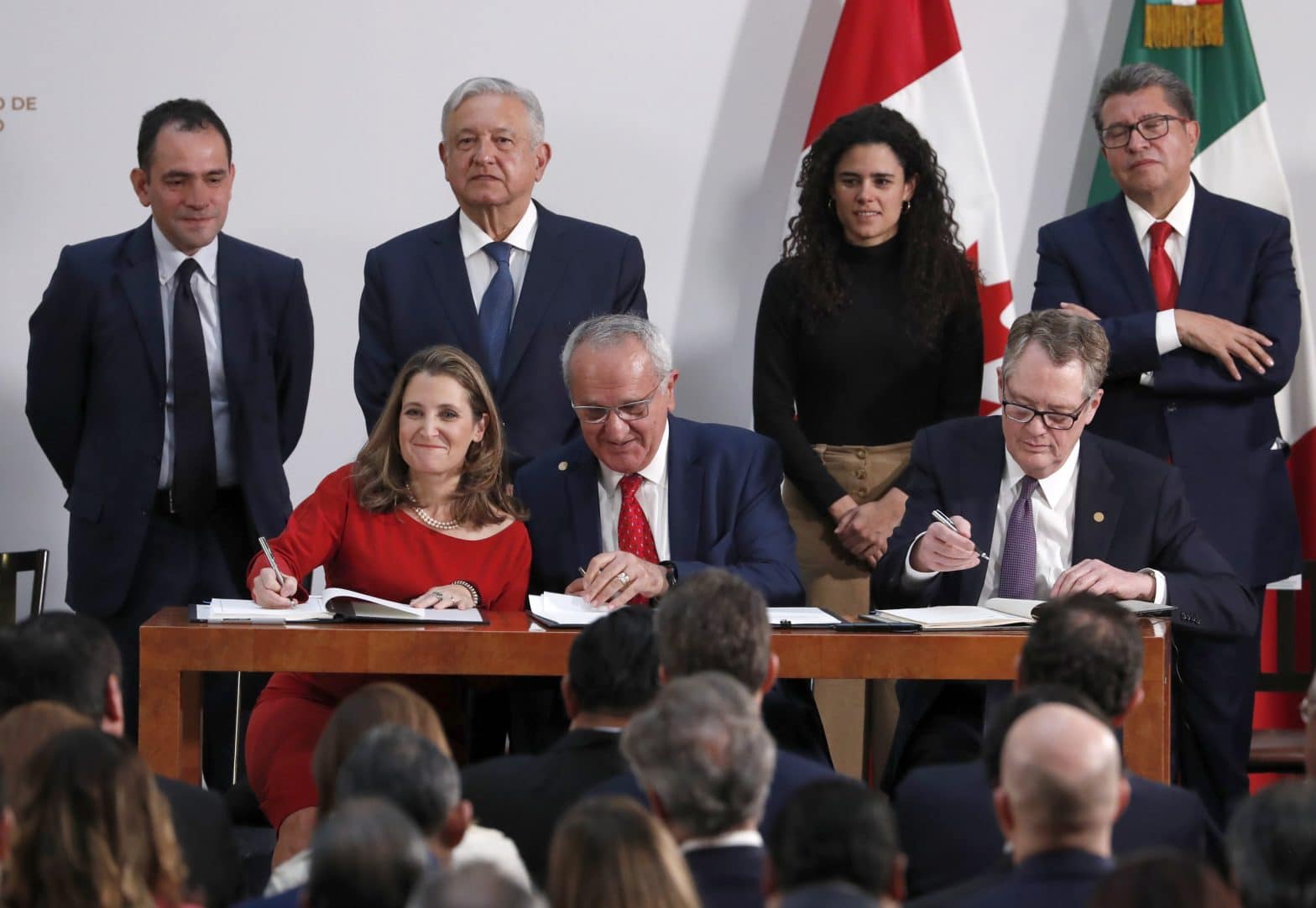
WASHINGTON – In a strong show of bipartisan cooperation just hours after they were at each other’s throats over the impeachment of President Donald Trump, Democrats and Republicans threw their support behind a new trade agreement with Canada and Mexico.
The 385-41 vote in the House on Thursday clears the way for the bill’s anticipated passage in the Senate and its being signed promptly by President Trump in the White House.
However, a vote in the Senate isn’t expected until after the new year, as Senate Majority Leader Mitch McConnell, R-Ky., said he will wait to hold a vote until the conclusion of an impeachment trial.
The passage of what is, technically, the implementing legislation for the revised United States-Mexico-Canada trade deal, came after months of negotiations involving U.S. Trade Representative Robert Lighthizer and House Speaker Nancy Pelosi and a working group comprised of Democratic lawmakers.
It also followed nearly two years of sometimes fraught talks with officials in Canada and Mexico.
While many of the provisions in the more than 2,000 page document simply update the original NAFTA agreement, it also includes changes that will discourage the “nearshoring” — moving factories and assembly plants to nearby, less expensive countries — that made the original deal such a boon for the North American neighbors of the U.S..
The USMCA adds new rules for food safety and e-commerce, includes provisions intended to prevent labor violations, and eliminates a special arbitration system that lawmakers on Capitol Hill long considered odious.
Lighthizer, who was on hand for the House vote, said the USMCA’s passage “with such huge bipartisan support is a major milestone.
“The USMCA is expected to create between 176,000 and 589,000 new American jobs and substantially increase economic growth. The International Trade Commission’s analysis shows that USMCA will have a more positive impact on our economy, jobs and wages than any other U.S. trade agreement ever negotiated.”
The International Trade Commission projected in April that the agreement would boost the economy by $68 billion and add 176,000 jobs six years after taking effect.
Thursday’s vote also allows lawmakers from both parties to head into the Christmas recess touting their support of an agreement sought by farmers, ranchers and business owners anxious to move past the months of trade tensions that have complicated spending and hiring decisions.
“Twenty-six years ago, I opposed NAFTA with every bone in my body,” said Rep. John Lewis, D-Ga. “I never thought the day would come when we would have the opportunity to right some of the wrongs in that agreement.”
Rep. Derek Kilmer, D-Wash., chairman of the New Democrat Coalition, a caucus that was an early and consistent supporter of modernizing NAFTA, said, “We do better when our communities nationwide are better able to export ‘Made in America’ products around the world.
“The updated USMCA makes critical improvements to a 25-year-old trade agreement to address 21st century issues, support workers, and improve our environment,” Kilmer continued. “This new deal is infinitely better than NAFTA, and I’m proud of the critical role NDC Members played in getting an agreement that can serve as a template for bipartisan consensus in future agreements.”
“Bringing the USMCA to a vote is good for the American people,” said Problem Solvers Caucus co-chair Rep. Tom Reed, R-N.Y., “Its passage through the House is a huge victory where people are put ahead of politics, and I thank my colleagues in the Problem Solvers Caucus for supporting this effort. It is time to get this to the President’s desk, as it is particularly good for our American farmers and workers.”
Rep. Jimmy Panetta, D-Calif., voted for the deal because, “Our agriculture on the central coast of California relies heavily on our leading trade partners Canada and Mexico. The USMCA will provide our farmers and ranchers with improved and continued access to those critical export markets and give them the certainty that they deserve.”
Rep. Anthony Brindisi, D-N.Y., sounded a similar note, saying “This trade deal will help our family farmers, small businesses, and workers.
“I worked hard, with Democrats, Republicans, and key members of the Administration to get this deal done. USMCA will make sure our dairy farmers have access to markets, hold Mexico and Canada accountable, and help keep good-paying jobs in our country,” he said.
The original NAFTA phased out nearly all tariffs on goods produced and traded within North America.
But Democrats for years have charged that NAFTA led to massive losses of high-paying manufacturing jobs in the U.S. as companies moved production to low-wage Mexico.
Trump made tossing the North American Free Trade Agreement a hallmark of his presidential run in 2016 as he tried to win over working-class voters in states such as Michigan, Wisconsin and Pennsylvania.
“Is the USMCA a perfect trade deal? No—no trade deal ever is,” said Rep. Denny Heck, D-Wash., “But as I see it, we have three possibilities: the old NAFTA, no NAFTA, or a new and improved NAFTA. The USMCA is the third of those options, a trade deal that is a significant improvement over the one it will replace.”
The prospects for passing the trade deal got a boost just last week when both the AFL-CIO and the Teamsters endorsed it. They joined a number of business groups who supported the deal, including the U.S. Chamber of Commerce.
However, others expressed dissatisfaction with the deal.
Rep. Tony Cárdenas, D-Calif., said he couldn’t support USMCA because he didn’t believe it was a fair deal for American workers.
“Today, I voted against NAFTA 2.0 because I do not believe it was a fair deal for American workers. While I do appreciate the efforts of my Democratic colleagues to fix the problems of the original NAFTA deal, this new trade agreement does not go far enough in protecting American workers and raising American wages, and it does not meet the environmental standards of a trade deal in the 21st century,” he said.
He also lamented that the final text of the bill omitted any mention of climate change.
The PASS USMCA coalition, which represented a range of industries including pharmaceuticals, withdrew its support for the measure after months of lobbying for it, decrying the removal of “certain intellectual property protections” that it said “puts American scientists and creators at a serious disadvantage abroad.”
Also unhappy was the Competitive Enterprise Institute, a nonprofit public policy organization that advocates limited government. In a joint statement, Iain Murray, the Institute’s vice president, and Ryan Young, a senior fellow, said, “While USMCA is not that different from NAFTA, its trade-unrelated provisions and political giveaways set precedents that could harm future trade agreements for decades to come.
“USMCA’s acronym, which scraps NAFTA’s “F” and “T” standing for “Free Trade,” is more telling than its drafters likely intended,” they said.

















